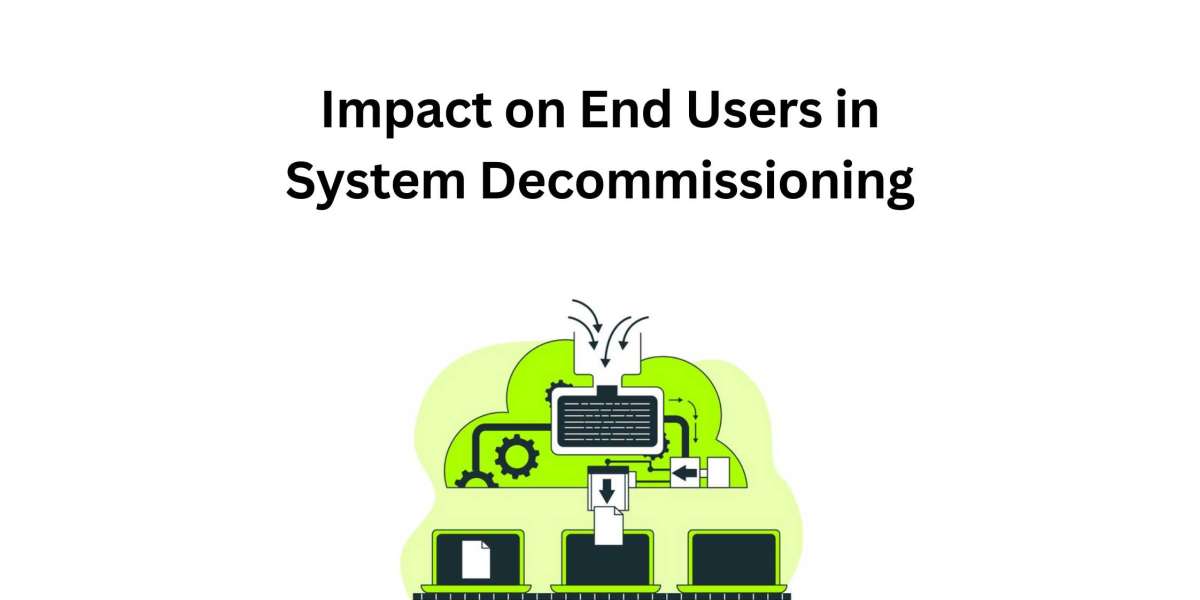System decommissioning is a pivotal phase in the evolution of an organization’s IT infrastructure, often driven by technological advancements, operational efficiencies, or regulatory requirements. Amidst the strategic considerations and technical complexities of decommissioning, it’s crucial to recognize and address the profound impact on end users. This blog delves into the multifaceted impact on end users in system decommissioning, highlighting the importance of empathy, communication, and support in managing this transformative process.
Disruption to Routine and Workflows
The decommissioning of familiar systems can disrupt end users’ routine workflows, resulting in a period of adjustment and adaptation. As they transition to new platforms or processes, end users may encounter challenges in navigating unfamiliar interfaces, accessing historical data, or performing routine tasks. Acknowledging and mitigating these disruptions through proactive support and training is essential to minimize productivity loss.
Loss of Familiar Tools and Features
End users often develop familiarity with specific tools, features, and functionalities within existing systems. The decommissioning of these systems can result in a perceived loss of familiar tools, leading to apprehension and resistance to change. Organizations must recognize the emotional impact of losing familiar features and proactively address end users’ concerns through effective change management strategies.
Training and Support Needs
The successful adoption of new systems or processes post-decommissioning hinges on comprehensive training and support for end users. Organizations must invest in tailored training programs, user guides, and accessible support channels to empower end users with the knowledge and resources needed to navigate the transition. Proactive support ensures that end users feel confident and capable in the new environment.
Data Accessibility and Transition
The accessibility and transition of data are pivotal concerns for end users during system decommissioning. The seamless transfer of historical data, documents, and records to new systems is essential to ensure continuity of operations. Organizations must prioritize data migration, preservation, and accessibility to alleviate end users’ concerns about data loss or inaccessibility.
Communication and Transparency
Effective communication and transparency are foundational to managing the impact on end users in system decommissioning. Open dialogue about the rationale behind decommissioning, the timeline of transition, and the support available instills confidence and trust among end users. Regular updates, FAQs, and user forums facilitate a culture of transparency and collaboration throughout the decommissioning process.
User Feedback and Engagement
Engaging end users in the decommissioning process through feedback mechanisms and user involvement fosters a sense of ownership and understanding. Organizations can leverage user feedback to address concerns, tailor support resources, and refine the transition process based on end users’ experiences. Empowering end users as active participants in the transition promotes a smoother and more inclusive decommissioning journey.
Empathy and Change Management
Empathy lies at the heart of effective change management in system decommissioning. Recognizing the emotional impact of change on end users and demonstrating empathy in addressing their concerns builds trust and resilience. Organizations that prioritize empathy and user-centric change management are better positioned to navigate the impact on end users with sensitivity and understanding.
In conclusion, the impact on end users in system decommissioning is a multifaceted aspect that demands empathy, proactive support, and effective change management. By acknowledging the disruptions to routine, addressing training and support needs, prioritizing data accessibility, fostering transparent communication, and embracing user feedback, organizations can navigate system decommissioning with a focus on end user experience. Empowering end users through the transition process fosters a culture of adaptability and resilience, ensuring a smoother and more inclusive decommissioning journey.
#AvenDATA #ITDecommissioning #systemdecommissioning #decommissioning #legacydata








